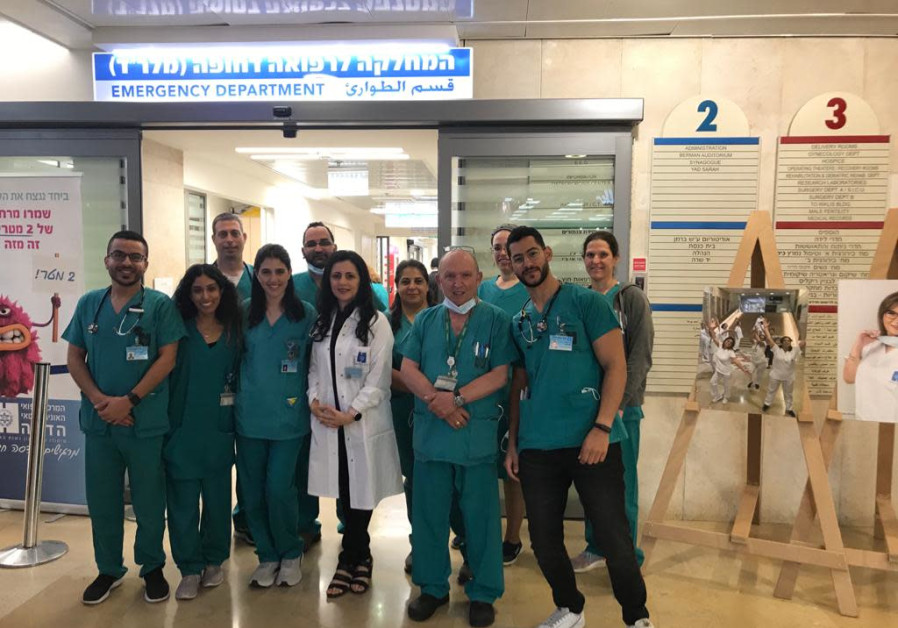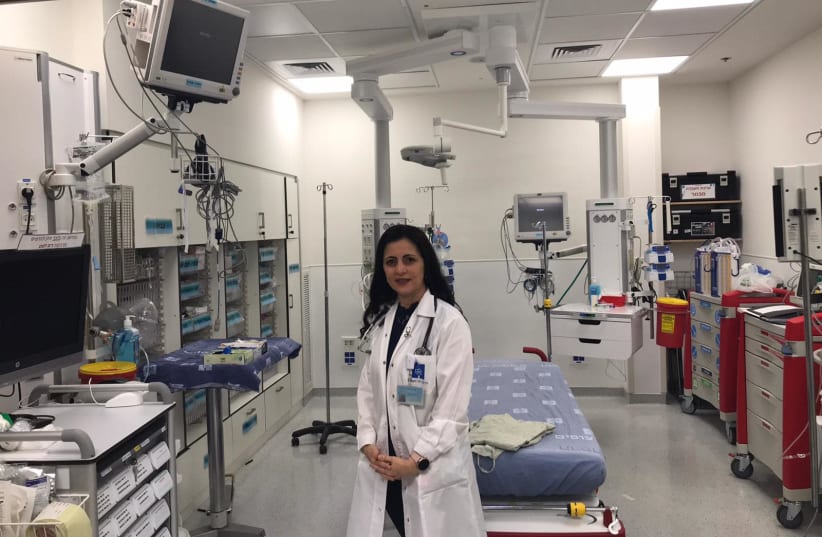When Dr. Shaden Salameh-Youssef was 10 years old, she had to call for an ambulance for her sick grandfather.
“I barely spoke Hebrew, but my parents were busy taking care of him, so I had to do it,” she said.
Almost 30 years later, Salameh remembers this episode as a defining moment in her decision to become a doctor.
“I felt so helpless, and I realized how important it could be to have a doctor in the family in case someone got sick,” she told The Jerusalem Post in her office in the Emergency Medicine Department of Hadassah-University Medical Center on Jerusalem’s Mount Scopus. “When I was a little older, I started to be attracted by the general idea of helping others.”
To pursue her mission, Salameh-Youssef left the little village of Turan, near Nazareth, to study medicine at the Hebrew University of Jerusalem. She has lived in Jerusalem ever since, and it is where she did her residency in internal and emergency medicine, obtained a master’s degree in health administration and began her career.
Three years ago, Salameh-Youssef became the first Arab-Israeli woman in the country to head an emergency department, supervising 10 doctors and 40 nurses, as well as paramedics and nonmedical staff, including Jews, Arabs, Christians and Muslims.


Her studies were not always easy, but the challenges motivated her.
“The experience of moving to Jerusalem was difficult,” she said. “I knew Hebrew, but not as well as Arabic. I was far away from my community, but I was also determined to meet the other.
“Many of my roommates over the course of the years were Jewish, as well as many of my friends. We were all united in the goal of saving others. Working together for us was very natural because we shared the same values. This is the same way I feel about the atmosphere at our hospital today.”
Salameh-Youssef said she was concerned about ethnic riots that are disrupting coexistence in mixed Arab-Jewish cities.
“It is very sad,” she said. “I’m against violence in any form, and I think that we are seeing many issues in all sectors of Israeli society, including forms of violence not related to Jewish-Arab tensions, such as violence against women.”
However, Salameh-Youssef said she also maintained a positive attitude.
“Our responsibilities as leaders is to get people to focus on the good so that things will be okay,” she said. “It is easy to look at other people’s mistakes. But instead, we should focus on how we can be better.”
Salameh-Youssef cited her medical staff as an example.
“Outside, Jews are scared of Arabs; Arabs are scared of Jews,” she said. “But here we manage as one family. Sometimes we also solve tensions between patients coming from different communities. We do not always succeed, but very often we do.”
Asked why there were not more Arabs in managerial positions in Israel, she said: “I’m not sure why this happens. But I do think that education is essential, and I encourage everyone, especially women, to pursue an education, not necessarily to become leaders, but to enrich themselves.”
Salameh-Youssef said she sometimes experiences discrimination.
“The two situations where it happens the most are at the airport and when looking for an apartment,” she said. “When my husband and I were looking for an apartment to rent, I could hear the horror in people’s voices when they heard our names. They would calm down only when I explained that we were both doctors.
“I think it is very sad because I feel that I am judged not for who I am but for where I’m from. They would trust me to save their lives, but not for me to live in their apartment.”
Nevertheless, Salameh-Youssef said the diversity of Israeli society is what makes it special.
“Our society needs to heal,” she said. “We are mixed, and this is what makes us beautiful and special. But we need to focus on what we have in common, not on our differences. We have to think about our shared destiny.”
Her hope is that medical workers can be an inspiration for all of society.
“We are here, all together, Jews and Arabs, of all religions, working, showing up for every medical emergency and leaving everything behind to take care of the sick,” Salameh-Youssef said. “We can be a light, a candle shining in the darkness.”
